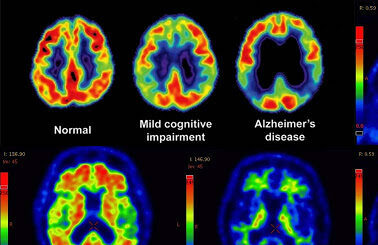You can't control your age, but can you slow the decline of aging by trying to keep your mental health in check? A 2018 study shows that being depressed actually aligns with a faster rate of brain aging.
Many studies have shown a link between depression and increased risk of dementia. Seniors with depression are more likely to experience memory problems, and older adults with depression are twice as likely to develop dementia and have a 65 percent higher risk of Alzheimer’s. But this study is the first to show that depression may cause an overall cognitive decline in the general population — not just older people.
Researchers combed through data from more than 71,000 people from 34 different studies. Scientists analyzed information from people both with symptoms of depression and those who were considered clinically depressed, evaluating whether it had an effect on things like memory loss, executive function (which involves decision making) and how quickly participants could process information. Those diagnosed with dementia were excluded from the study, which means the results paint a clearer picture of how depression affects the minds of cognitively normal people.
They found that those with depression faced a steeper cognitive decline when they hit older adulthood than those without depression. Because dementia has what’s considered a long pre-clinical period—when patients have the signs of dementia in the brain, but are not showing symptoms that interfere with their life—being on the lookout for signs like depression could help identify who needs early interventions like lifestyle changes that might help with the disease.
Plus, other studies have found that treating depression might lower Alzheimer’s risk.
“Our findings should give the government even more reason to take mental health issues seriously and to ensure that health provisions are properly resourced,” said Darya Gaysina, a lead study author from the University of Sussex. “We need to protect the mental wellbeing of our older adults and to provide robust support services to those experiencing depression and anxiety in order to safeguard brain function in later life.”
The researchers emphasized that having depression doesn’t mean dementia is in your future.
“It’s not inevitable that you will see a greater decline in cognitive abilities, and taking preventative measures such as exercising, practicing mindfulness and undertaking recommended therapeutic treatments, such as cognitive behavior therapy, have all been shown to be helpful in supporting wellbeing, which in turn may help to protect cognitive health in older age,” said Amber John, who carried out this research for her Ph.D. at the University of Sussex.
This study was published in the journal Psychological Medicine.



